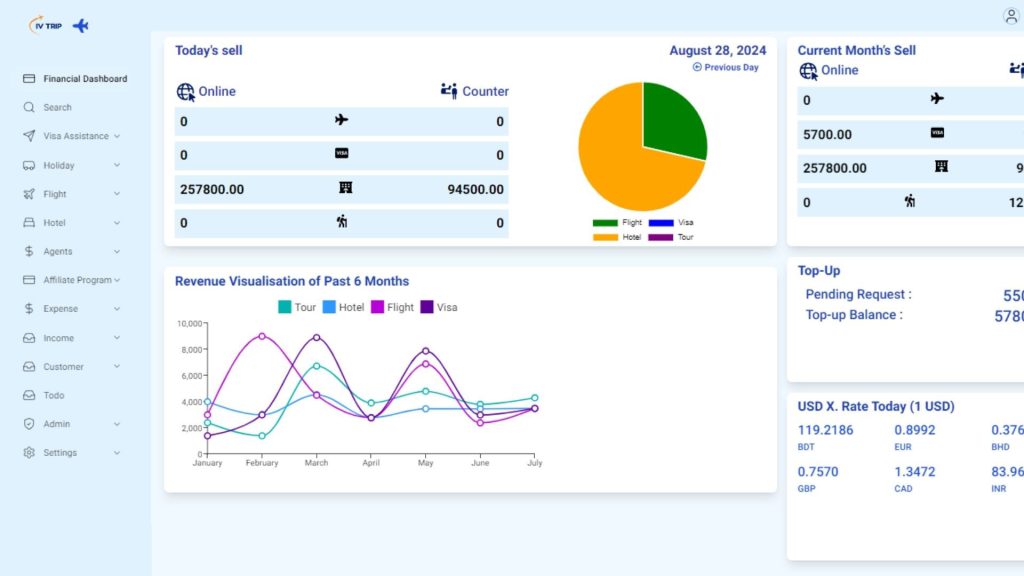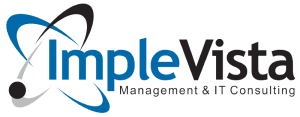Efficient accounting for SMEs is critical for growing businesses, especially in emerging markets like Bangladesh. As SMEs expand, they face increasing complexity in billing, tax compliance, and financial reporting. Modern accounting software can address these challenges by automating key tasks and providing real-time insights. In this article, we explore the five essential accounting features every growing SME needs, from automated invoicing to mobile and multi-currency support. We’ll show how these features streamline operations, improve cash flow, and support informed decision-making, ensuring your SME thrives both locally and globally.
What Accounting for SME Really Means
Accounting for SME refers to the financial management processes and tools designed specifically for small and medium-sized enterprises. Unlike large corporations with complex departments, SMEs often operate with lean teams and limited resources. Their accounting systems need to be efficient, affordable, and easy to use—while still offering the power to manage invoicing, budgeting, expenses, payroll, and reporting.
In practical terms, accounting for SME covers everything from recording daily transactions to generating balance sheets and profit-and-loss statements. It ensures accuracy, compliance, and transparency, giving business owners a clear view of where their money is going and how it’s performing. When implemented properly, it becomes more than a back-office task—it’s the foundation for smarter decisions and sustainable growth.

Why SMEs Need Accounting Systems
Here’s the thing—many small businesses in Bangladesh still rely on spreadsheets or manual bookkeeping, which works only up to a point. As soon as a company starts growing—hiring more people, handling multiple clients, or managing recurring payments—manual methods fall short. That’s where modern accounting for SME software steps in.
A well-designed accounting system automates repetitive tasks, minimizes human error, and keeps financial data accessible from anywhere. It helps SMEs manage cash flow efficiently, stay compliant with tax laws, and forecast future performance. In short, reliable accounting isn’t just about numbers—it’s about control, clarity, and confidence. Whether you’re running an eCommerce startup or a construction firm, effective accounting turns your data into actionable insight, helping you plan better and grow faster.
-
Automated Invoicing and Billing
Manual invoicing is time-consuming and error-prone, which can delay payments and hurt cash flow. Automated invoicing lets businesses generate and send invoices automatically, saving hours of work and reducing mistakes. For example, automated systems can create professional invoices (with your branding and terms) and send them to clients at regular intervals. Many accounting platforms also include recurring billing, which is ideal for subscription-based services or repeat orders.
Automating invoicing streamlines your operations and improves payment collections. Studies show that automated invoicing can streamline operations and drive growth by improving efficiency, accuracy, and cash flow management. Automated invoicing also helps avoid human errors. If a client misses a due date, the system can send payment reminders automatically, ensuring invoices aren’t forgotten. In turn, this minimizes late payments and keeps money flowing steadily. As one expert notes, “automated invoicing and payment reminders help minimize late payments and improve your cash flow consistency”.
Key benefits of automated invoicing include:
- Time Savings: Generates and emails invoices with a few clicks or on a schedule.
- Consistency and Branding: Uses pre-set templates with your business logo and terms.
- Payment Reminders: Send automatic overdue notices to improve on-time payments.
- Reduced Errors: Eliminates manual data entry mistakes in invoice amounts or client details.
By freeing staff from routine billing tasks, your team can focus on serving customers and growing the business. SME accounting software like Implevista’s iQuidi, for example, includes robust sales and invoice management to automate these processes.
-
Expense Tracking and Budgeting
Growing SMEs must keep a close eye on spending to protect profitability. Built-in expense tracking and budgeting tools are vital. An accounting system should allow you to categorize expenses (e.g., supplies, salaries, utilities) and attach receipts. Mobile apps can even let employees snap photos of receipts on the spot. This ensures every expense is recorded and categorized correctly. Over time, the software can compare actual spending against planned budgets to identify overspending areas.
Key expense and budgeting features for SMEs:
- Expense Categorization: Automatically match transactions from bank feeds to expense categories.
- Receipt Capture: Upload or photograph receipts, linking them to expense entries.
- Budget Monitoring: Set budgets for categories or projects and receive alerts when nearing limits.
- Analytics: Generate reports showing where money is going, helping identify cost-saving opportunities.
Such features give SMEs greater financial control. For instance, iQuidi offers budget planning and forecasting modules, helping businesses plan future expenses and track them against actuals. Over time, this clarity in spending helps avoid surprises and makes financial planning more strategic.
Calculator and financial printouts – representing how SMEs can track budgets and expenses to stay on top of their finances (source: Pixabay).
-
Multi-Currency Support for Global Business
As SMEs expand beyond local markets, multi-currency support becomes crucial. Companies that import materials or export goods need to invoice in foreign currencies and manage exchange rates. An accounting system with multi-currency support lets you create invoices, process payments, and record expenses in any currency. It automatically applies up-to-date exchange rates, so your books always stay accurate.
Multi-currency accounting opens new markets. For example, modern platforms can handle over 160 currencies for invoicing and payments. Transactions in USD, EUR, or any other currency are converted instantly, keeping your financial reports current. This automation eliminates cumbersome manual conversions and errors. As Xero notes, its multi-currency feature “automates and delivers currency conversions in real time, reducing admin and keeping your financial reports up to date”.
By supporting multiple currencies, your SME can sell to international customers in their native currency, improving customer experience and expanding your reach. You also get consolidated financial statements that reflect currency fluctuations. In short, multi-currency support turns global trading from a headache into a seamless process, letting you focus on growth rather than exchange rates.

-
Cloud-Based Accounting with Mobile Access
Modern SMEs need flexibility. Cloud-based accounting means your financial data lives on secure servers, accessible 24/7 from anywhere. Whether in the office, at home, or on the road, business owners and staff can log in on laptops, tablets, or smartphones. For example, Implevista’s iQuidi is built on the cloud, offering mobile-friendly interfaces, secure cloud storage, and daily backups to protect your data.
Mobile access is especially valuable. A mobile app lets you review reports, approve transactions, or capture receipts on the go. GetApp highlights that “Mobile access allows users to manage accounting tasks from any location”, enabling quick approvals, expense tracking, and document uploads to ensure financial data stays up-to-date. In practice, this means a manager can approve an invoice while traveling, or an employee can log a delivery receipt right from a warehouse.
Key aspects of mobile/cloud accounting:
- Anytime, Anywhere Access: Work on your accounts with any internet device.
- Automatic Updates and Backup: Cloud software updates itself, and daily backups keep your data safe.
- Collaborative Workflow: Multiple team members can work simultaneously without file-sharing issues.
- Offline Functionality: Some apps allow entering data offline and syncing later, useful in low-connectivity areas.
For SMEs in Bangladesh and elsewhere, cloud/mobile accounting supports remote work and real-time collaboration. It eliminates reliance on physical servers or local backups. Overall, cloud/mobile features make accounting more responsive and convenient, so you never miss a beat in your financial management.
A smartphone displaying financial charts – illustrating how mobile access and cloud accounting keep SME data at your fingertips anywhere, anytime (source: Pixabay).
-
Real-Time Financial Reporting and Analytics
Finally, real-time reporting transforms accounting from static record-keeping into a strategic tool. Instead of waiting for monthly statements, growing SMEs need up-to-the-minute insight into cash flow, profitability, and key metrics. Modern accounting software provides dashboards and reports that update as transactions occur.
Real-time financial data empowers smarter decisions. It “eliminates delays, allowing businesses to make faster and more informed decisions”. For example, if marketing spend spikes, a live dashboard shows immediately whether sales cover the expense or if adjustments are needed. Real-time reporting also enhances accuracy and compliance by reducing manual data entry. As one guide explains, it “drastically reduces the likelihood of errors caused by manual data entry” and streamlines audits since everything is recorded instantaneously.
Important reporting features include:
- Dashboards: Visualize revenue, expenses, and profit at a glance.
- Custom Reports: Create balance sheets, cash flow statements, and P&Ls on demand.
- Alerts and Trends: Set alerts for budget overruns or cash flow dips; analyze trends by week/month.
- Forecasting Tools: Use historical data to project future revenues and expenses.
Together, these reporting tools give SMEs a real-time financial pulse. You can spot cash flow issues early, plan inventory needs, and pivot quickly when markets change. Real-time reporting keeps you proactive. As one expert puts it, on-demand insights from live accounting data are “becoming essential” to sustainable success.

iQuidi — The Smarter Accounting Solution for Growing SMEs
Implevista’s iQuidi is a complete accounting software for SMEs in Bangladesh, built to simplify financial management through automation, accuracy, and smart insights. Designed for modern businesses, iQuidi integrates every accounting function—so you can manage everything from invoicing to budgeting in one place.
Key highlights of iQuidi include:
- Automated Invoicing & Sales Management: Generate, send, and track invoices effortlessly while maintaining professional consistency.
- Expense & Budget Control: Plan budgets, track spending, and monitor cash flow in real time to make informed decisions.
- Inventory & Procurement Management: Stay organized with real-time tracking of purchases, supplies, and stock levels.
- Data Security & Cloud Access: Enjoy enterprise-grade data protection and access your accounting data anytime, anywhere.
- Real-Time Progress Monitoring: Visual dashboards keep you updated on profit, loss, and business performance.
- Multi-Industry Support: Ideal for SMEs in eCommerce, manufacturing, construction, law, and creative industries.
With iQuidi, SMEs gain a reliable partner that grows with them—turning complex accounting tasks into simple, automated workflows.
For growing SMEs, robust accounting isn’t just about crunching numbers—it’s about empowering growth. The features above – automated invoicing, expense tracking, multi-currency support, mobile cloud access, and real-time reporting – form the backbone of modern SME accounting systems. They save time, cut errors, ensure compliance, and provide the insights needed to expand confidently.
By adopting these features (for example, through solutions like Implevista’s iQuidi software), an SME can streamline finances and focus on core business goals.
Ready to take your SME accounting to the next level? Contact Implevista‘s experts to learn how iQuidi can bring these features to your business. You can also explore our service page (accounting for SME solution) or subscribe to our blog for more tips. Don’t miss our related post on best accounting practices for SMEs; we’re here to support your growth every step of the way!

FAQs: Accounting for SME
- What is automated invoicing?
Automated invoicing is a feature in accounting software that generates and sends invoices automatically, according to schedules or events. It eliminates manual billing work by using templates and auto-filling customer details. Automated invoicing speeds up payments and reduces errors, helping SMEs maintain steady cash flow.
- Why is mobile access important for SME accounting?
Mobile access allows business owners and staff to handle accounting tasks from anywhere using smartphones or tablets. This means you can approve invoices, scan receipts, and check financials on the go. As one review notes, mobile accounting “allows users to manage accounting tasks from any location,” improving flexibility and ensuring up-to-date finance management.
- What is multi-currency support in accounting software?
Multi-currency support lets businesses perform transactions and maintain records in multiple currencies. For SMEs trading internationally, this feature automatically converts invoices and payments at current exchange rates. It simplifies invoicing foreign clients and tracking overseas expenses. Automating currency conversion in real time reduces manual effort and keeps financial reports accurate across borders.
- How does real-time reporting benefit my business?
Real-time reporting provides instant visibility into your financial data, updated as transactions occur. This means up-to-the-minute insights into cash flow, revenues, and expenses. The benefit is faster, data-driven decision-making: you can spot cash flow issues early, adjust budgets on the fly, and stay agile. Real-time reports also improve accuracy by minimizing manual data entry and delays.
- What is expense tracking, and why is it useful?
Expense tracking lets you record, categorize, and analyze every business expense. This feature ensures no cost goes unnoticed – for example, you can attach receipts and match them to expenses. For SMEs, this means better budget control. You can compare actual spending against forecasts, identify cost overruns, and make adjustments. Good accounting software even automates bank-feed matching to speed up expense logging.
- Why do SMEs need cloud-based accounting software?
Cloud-based accounting provides secure access to financial data from anywhere, without installing software locally. It offers continuous updates and backups, reducing IT overhead. For SMEs, cloud accounting enables collaboration (multiple users working at once) and flexible, remote access. This is especially valuable in Bangladesh and other countries where team members may work across locations. Cloud tools often include mobile apps, reinforcing accessibility.
- How can accounting software improve cash flow for small businesses?
Accounting software with features like automated invoicing, payment reminders, and real-time tracking can dramatically improve cash flow. By ensuring invoices are sent promptly and followed up automatically, businesses get paid faster. Expense tracking also helps cut unnecessary costs. Together, these features keep cash moving in and out more predictably, helping an SME stay financially healthy.
- What accounting features should I look for in a growing SME?
Look for core features like automated invoicing/billing, expense management, and bank reconciliation. Also prioritize mobile/cloud access, robust reporting, and multi-currency handling if you trade abroad. Tax compliance tools (like VAT reporting for Bangladesh) are important too. Essentially, choose software that handles your day-to-day transactions automatically while giving clear insights into your finances.
- How does multi-currency support help with international customers?
With multi-currency support, you can invoice international clients in their local currency and accept payments in various currencies. The software handles currency conversions and records each transaction in your base currency. This makes your business more global-friendly – customers pay in familiar terms, and you avoid manual conversion headaches. It’s an essential feature for SMEs expanding to foreign markets.
- Do I need special training to use these accounting features?
Most modern accounting platforms are designed for business users, not just accountants. They include intuitive interfaces and tutorials. While some initial setup (like linking bank accounts or setting up templates) is needed, features like automated invoicing and reporting do not require specialized training. Plus, many providers (like Implevista) offer customer support and resources to help your team get started quickly.




